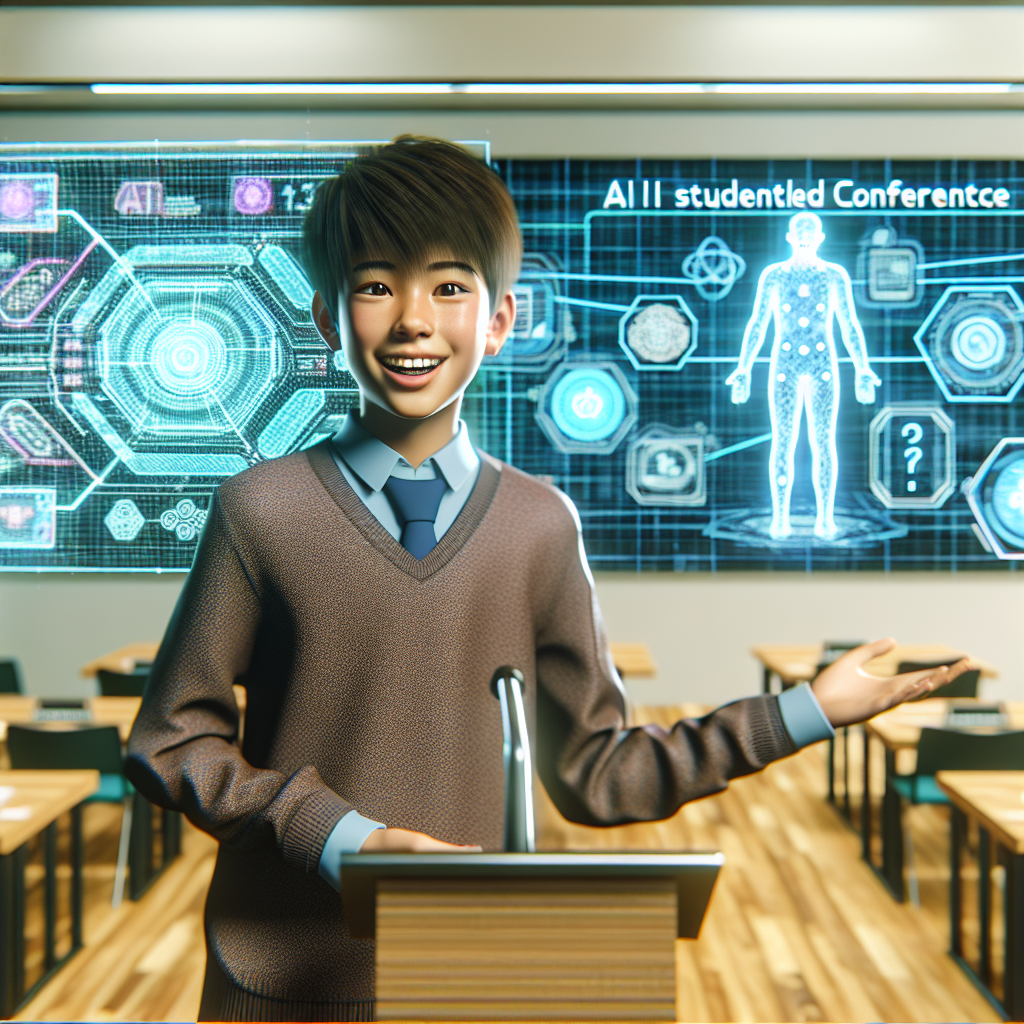Student-led conferences have become a popular method for schools to involve students in their own learning process and to promote self-reflection and goal-setting. Traditionally, parent-teacher conferences have been the primary means for parents to receive updates on their child’s progress in school. However, student-led conferences offer a unique opportunity for students to take ownership of their learning and showcase their achievements and growth to their parents and teachers.
In recent years, schools have begun to leverage artificial intelligence (AI) technology to enhance the student-led conference experience. AI can be used to streamline the process, provide personalized insights, and facilitate more meaningful conversations between students, parents, and teachers. In this article, we will explore how AI can be used to enhance student-led conferences and address some common questions and concerns.
How AI can enhance student-led conferences:
1. Personalized Insights: AI can analyze student data and provide personalized insights to students, parents, and teachers. For example, AI can track student progress, identify areas of strength and weakness, and provide recommendations for improvement. This information can help students set realistic goals and track their progress over time.
2. Streamlining the Process: AI can automate many of the administrative tasks associated with student-led conferences, such as scheduling appointments, sending reminders, and organizing presentation materials. This can save time for teachers and students, allowing them to focus on more meaningful aspects of the conference.
3. Data Visualization: AI can help visualize student data in a more engaging and interactive way. For example, AI-powered dashboards can display student performance data in a visually appealing format, making it easier for students and parents to understand and interpret the information.
4. Feedback and Reflection: AI can facilitate feedback and reflection during student-led conferences. For example, AI-powered tools can help students reflect on their progress, set goals for the future, and receive feedback from their parents and teachers. This can promote a more collaborative and constructive conversation during the conference.
5. Personalized Learning Plans: AI can help create personalized learning plans for students based on their individual needs and learning styles. For example, AI can recommend specific resources, activities, or interventions to help students achieve their academic goals.
Common questions and concerns about leveraging AI for student-led conferences:
1. Is AI replacing human interaction in student-led conferences?
AI is not meant to replace human interaction in student-led conferences, but rather to enhance it. AI can automate administrative tasks, provide personalized insights, and facilitate more meaningful conversations between students, parents, and teachers. However, the human element is still essential in building relationships, providing emotional support, and fostering a sense of connection and belonging.
2. How can schools ensure the privacy and security of student data when using AI?
Schools must take precautions to ensure the privacy and security of student data when using AI. This includes implementing robust data protection measures, obtaining parental consent for data collection and storage, and complying with relevant privacy laws and regulations. Schools should also work with reputable AI providers who prioritize data security and confidentiality.
3. How can AI help students with special needs or learning differences during student-led conferences?
AI can be particularly beneficial for students with special needs or learning differences during student-led conferences. For example, AI-powered tools can provide personalized accommodations, support individualized learning plans, and facilitate communication between students, parents, and teachers. AI can help ensure that all students have access to a meaningful and inclusive conference experience.
4. How can schools ensure that AI is used ethically and responsibly in student-led conferences?
Schools must establish clear guidelines and policies for the ethical and responsible use of AI in student-led conferences. This includes ensuring transparency in how AI is used, providing training and support for teachers and students, and promoting accountability for the outcomes of AI-driven interventions. Schools should also monitor and evaluate the impact of AI on student learning and well-being to ensure that it is used in a way that benefits all students.
In conclusion, AI has the potential to enhance student-led conferences by providing personalized insights, streamlining the process, visualizing data, facilitating feedback and reflection, and creating personalized learning plans. By leveraging AI in a thoughtful and responsible manner, schools can create a more engaging, inclusive, and effective conference experience for students, parents, and teachers. As AI continues to evolve and improve, the possibilities for enhancing student-led conferences are endless. It is essential for schools to embrace AI as a tool to support student learning and growth and to ensure that all students have the opportunity to succeed.

